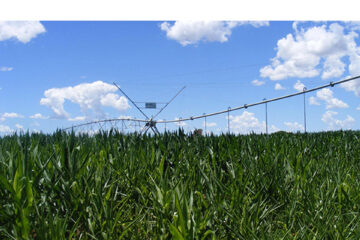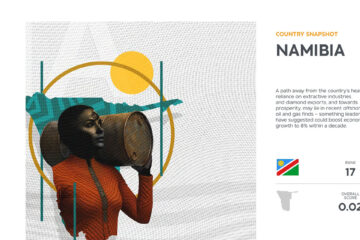Namibia’s mining sector continues to register strong gains in 2025, with uranium and gold emerging as key pillars of economic growth and resilience.
Namibia’s uranium industry stands out as a top performer, recording a 59% year-on-year increase in production as of April 2025. Supported by rising global demand for clean and reliable energy sources, uranium has become the country’s most valuable export, contributing N$2.86 billion (26%) of Namibia’s total exports for April.
Namibia is cementing its reputation as a strategic supplier of uranium to the world, especially as nuclear energy gains renewed momentum in global energy transition efforts.
The strong performance of our uranium sector is a reflection of confidence in the country’s resource potential.
Gold exports also saw a substantial boost, earning N$1.69 billion in April and making up over 15% of total exports. Despite short-term production fluctuations, the value of gold remains resilient on the back of historically high global prices, averaging US$3,309 per ounce in May, a 41% increase year-on-year. Namibia’s gold mines have steadily increased output, contributing to broader economic stability.
Diamond production declined by 26% in April compared to the same period in 2024, with the sector’s share of total exports falling to 10.5%, down from 12.9% a year earlier.
This downturn follows deliberate production cuts by Debmarine Namibia throughout 2024 and early 2025, aimed at curbing oversupply and stabilising global diamond prices.
Despite these efforts, the natural diamond industry continues to face mounting challenges, including intensifying competition from lab-grown alternatives and subdued demand across key Asian markets.
Encouragingly, inflationary pressures are easing, with Namibia’s annual inflation rate declining to 3.5% in May 2025, down from 4.9% in May 2024. This has helped ease cost burdens across mining operations.
Exports from the mining and quarrying sector reached approximately N$5.4 billion in April, accounting for nearly half of Namibia’s total export earnings.
In the commodity markets, tin and copper prices remain elevated, supported by global demand from technology and energy sectors. Tin prices averaged US$32,007 per metric ton, 72% higher than pre-COVID levels, while copper reached US$9,740 per metric ton in March, driven by electric vehicle and green infrastructure demand.
These positive trends reflect the resilience and adaptability of Namibia’s mining industry, even in a complex global environment. Despite the ongoing challenges in the diamond sector, the Chamber holds an optimistic view on the outlook for mining, which is supported by the strong performance of gold and uranium.
– Chamber of Mines of Namibia




